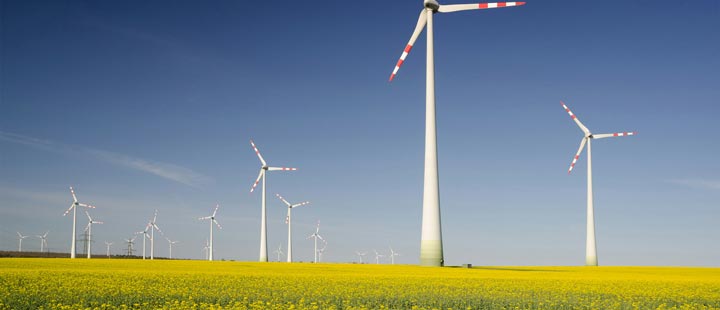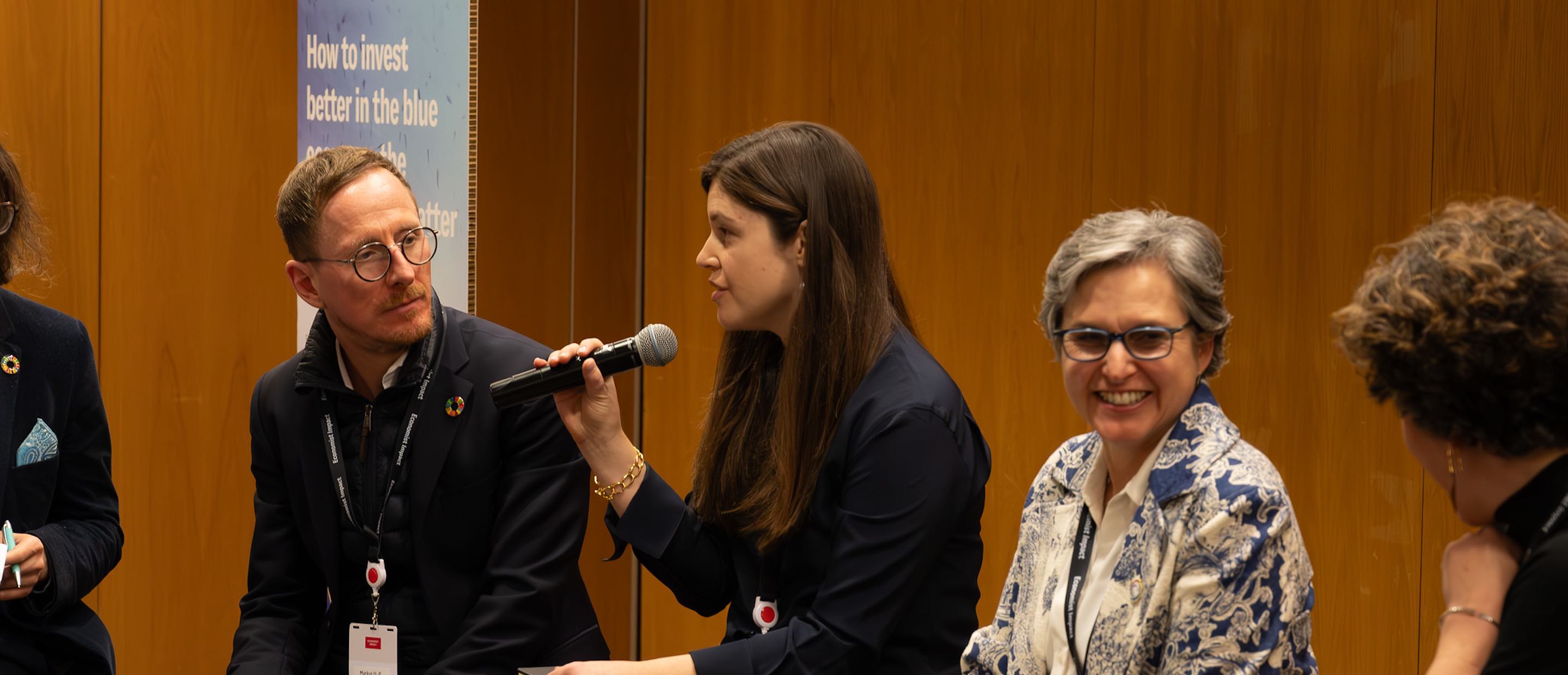
What is ESG investing?
ESG investing is the philosophy that investors should consider the impact that their investment decisions will have on the natural world and on society, as well as any financial gains that they might make.

Our approach to sustainability
As responsible wealth managers, we think continually about the long term. No other long-term trend will be more consequential – to your wealth or society – than sustainability.
Our ESG expertise

ESG investing: how we can help
Find out more about how we can help you to align your portfolio with your values and aims.

ESG principles and standards
Why a lack of common standards for ESG investing makes it vital for investors to look “beyond the ratings".

The "E" in ESG: environmentally responsible investing
Environmental factors refer to the impact that a company has on the natural world

The "S” in ESG: socially responsible investing
Social factors are those that affect people – whether employees, customers or society at large

The "G" in ESG: corporate governance
Governance factors relate to whether a company manages its business in a responsible way

Our ESG commitments
We’re committed to giving clients the information, advice and products they need to help change the world for the better.

Our ESG ambition
We’re committed to supporting our clients’ sustainability transition by providing them with thought leadership, advice and solutions to help them have a positive impact on the world.
ESG trends and insights

ESG
ESG investment performance: drivers and management
This PERSPECTIVES Special explores the nuances behind the numbers, showing that ESG performance depends heavily on how it's defined, implemented and measured. Read for more details today.
Sep 10, 2025

Feature article
Aussie eDNA: our sampling programme reaches Sydney Harbour
Sydney Harbour was one of the destinations for Deutsche Bank’s global eDNA sampling programme. We spoke to scientist Dr. Vanessa Pirotta about how this collaborative initiative can contribute to our knowledge of local marine life.
Jul 28, 2025

Feature article
Understanding our oceans: Deutsche Bank eDNA testing programme reaches Alaska
Deutsche Bank’s eDNA testing programme continues, giving new insights on marine life around the world.
May 23, 2025

ESG Special
ESG and Sustainability Market Monitor
The client-ready ESG and Sustainability Market Monitor helps you stay informed and up-to-date on the latest developments in environmental, social and governance (ESG) investing and the transition to more sustainable economies.
Apr 14, 2025

Jargon-busting series
What are nature-based solutions?
If you can leverage the power of nature to support human flourishing, that’s a nature-based solution. Like tree canopies that combat urban heat and pollution, or coral reefs that limit coastal storm surges, nature-based solutions rely on the inherent value of the natural world to improve human environments.
Dec 17, 2024

Jargon-busting series
What is the sustainable transformation?
Learn more about the sustainable transformation in our jargon busting piece, and how business, practices and the economy are being reshaped.
Nov 26, 2024
.webp)
PERSPECTIVES Special
ESG Survey 2024: Investing in the sustainable transition
Our 4th annual ESG Survey shows that investors are already investing in the sustainable transition, with evolving views on what are likely to be the leading future sectors and return drivers. Fueled by pragmatism as well as principles, ESG investment is happening. Read more.
Nov 12, 2024

Feature article
New Blue Perspectives: Monitoring Ocean Biodiversity
In this report, we describe initial findings from our research project to monitor ocean biodiversity. Working with our partners, we used environmental DNA (eDNA) techniques to analyse ocean water samples.
Oct 10, 2024

Jargon-busting series
ESG and sustainability: what do investors need to know about how they differ?
A look at the similarities and differences between ESG and sustainability, why they both matter to investors and how they are shaping the future of business.
Oct 04, 2024

Feature article
eDNA: measuring ocean biodiversity
We’re always looking for ways to connect our partners and raise awareness of things we know our clients care about. Together with our partners, we track biodiversity in our ocean in this eDNA project initiative.
Oct 01, 2024
See more
Ocean conservation and the sustainable blue economy

Feature article
Aussie eDNA: our sampling programme reaches Sydney Harbour
Sydney Harbour was one of the destinations for Deutsche Bank’s global eDNA sampling programme. We spoke to scientist Dr. Vanessa Pirotta about how this collaborative initiative can contribute to our knowledge of local marine life.
Jul 28, 2025

Feature article
Understanding our oceans: Deutsche Bank eDNA testing programme reaches Alaska
Deutsche Bank’s eDNA testing programme continues, giving new insights on marine life around the world.
May 23, 2025

Feature article
New Blue Perspectives: Monitoring Ocean Biodiversity
In this report, we describe initial findings from our research project to monitor ocean biodiversity. Working with our partners, we used environmental DNA (eDNA) techniques to analyse ocean water samples.
Oct 10, 2024

Feature article
eDNA: measuring ocean biodiversity
We’re always looking for ways to connect our partners and raise awareness of things we know our clients care about. Together with our partners, we track biodiversity in our ocean in this eDNA project initiative.
Oct 01, 2024

The sustainable blue economy
The metrics that matter: investing in the sustainable blue economy
At the Economist’s 11th annual World Ocean Summit, we hosted a "How To" session aimed at creating a set of action points and practical takeaways for individuals and organisations committed to restoring ocean health.
Jun 10, 2024
Biodiversity and natural capital

Jargon-busting series
What are Life Pillars?
Life Pillars provide essential resources and services crucial for the prosperity of humanity and the global economy — and yet they are often undervalued or taken for granted.
Aug 01, 2024

PERSPECTIVES Special
Atmosphere: Shield of the earth
The third in our trilogy of keynote presentations on the Earth's "Life Pillars" explains why climate-related risks and opportunities should be important considerations for investors with regard to long-term portfolio development.
Mar 26, 2024

CIO Nature Series
Rainforests: the Earth’s green lung
Rainforests provide invaluable ecosystem services supporting climate management, biodiversity, and rural livelihoods—but they are also fragile. In this publication, we focus on four key concerns: deforestation, climate change, poaching and illegal trade, and mining and oil extraction
Aug 02, 2023

Feature article
Giving nature its true value
In the midst of a climate and inequality crisis, is it time to ditch GDP as a measure of economic success? Academics, conservationists and, increasingly, investors are looking to other factors such as natural capital.
May 04, 2023

PERSPECTIVES Special
Land: A key Life Pillar
In our publication, we take a deep look at the importance of biodiversity, particularly from an investor's perspective.
Apr 18, 2023